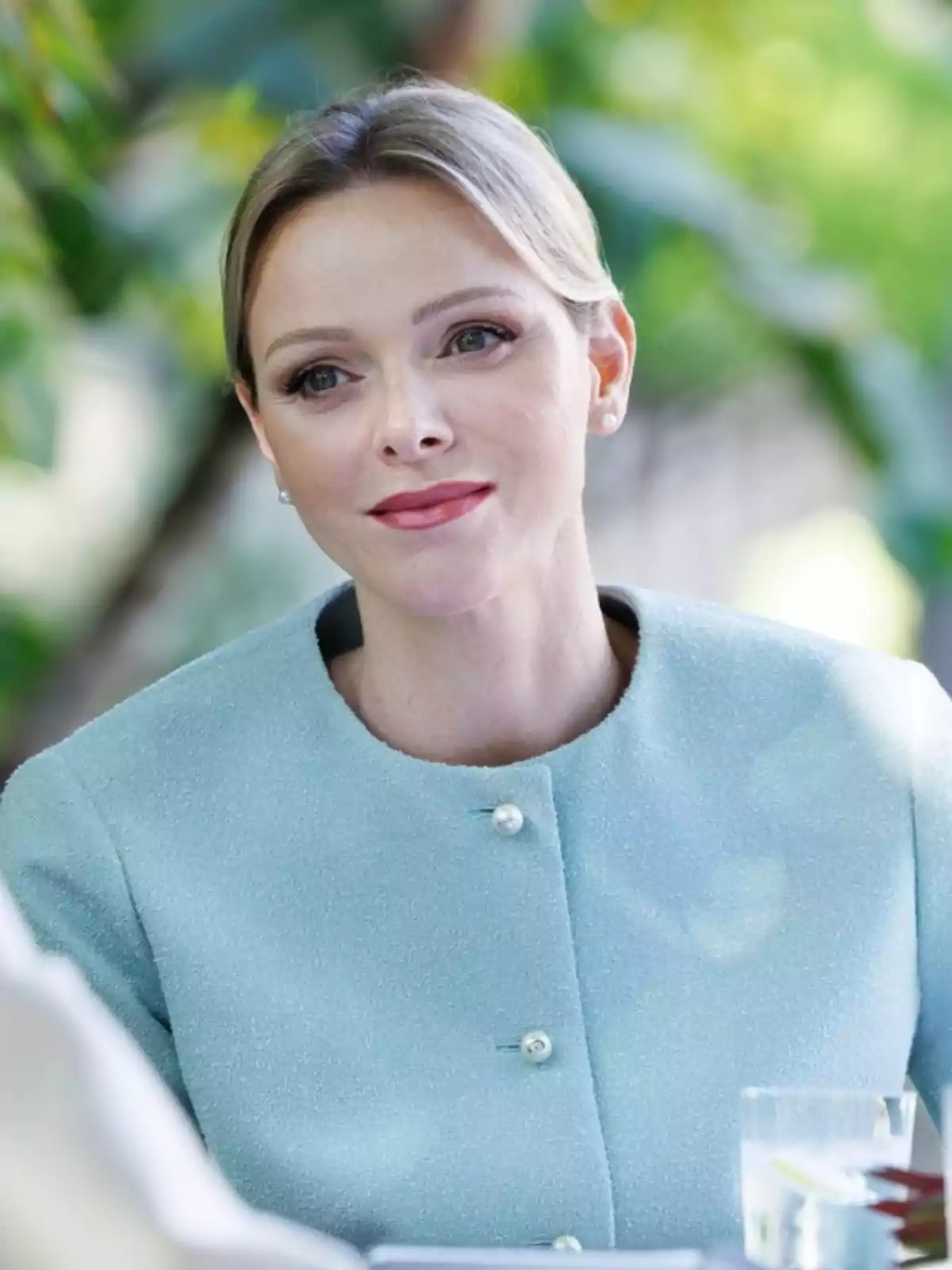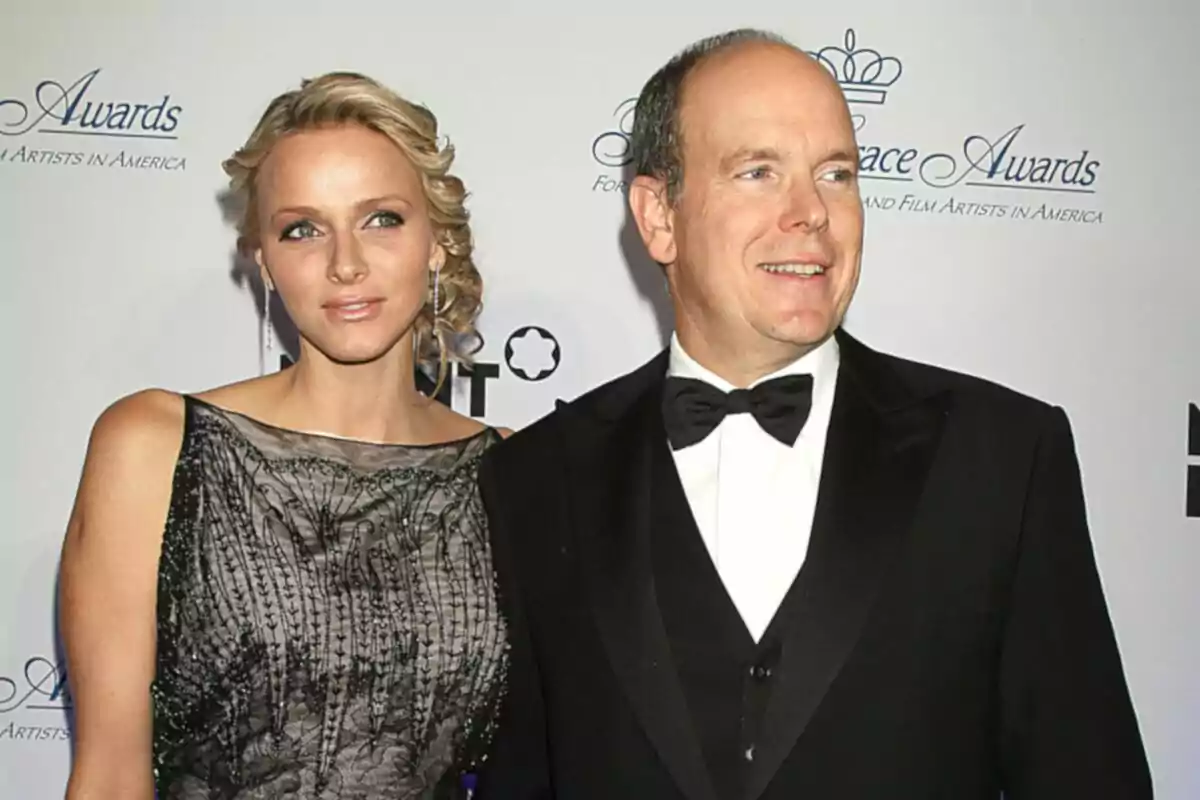The emotional health of Princess Charlene of Monaco is once again a cause for concern. Although the Principality denies any problems, a psychology expert has given voice to what many have suspected for years. "For years, she has been extremely sad and depressed," confessed Lara Ferreiro, a psychologist specializing in the analysis of public figures and royalty.
Her words rekindle doubts about Charlene's stability and fuel the theory that, behind the official image, there is deep personal suffering. For more than a decade, Charlene's figure has been shrouded in mystery. Is she truly happy in her role as Prince Albert's wife? What has been the personal cost of keeping up that public image?

Monaco can no longer deny the worrying situation of Princess Charlene
The image of Charlene of Monaco on her wedding day went around the world. Far from radiating joy, the bride appeared visibly affected. With serious expressions and tears she couldn't hold back, the then South African swimmer revealed an inner conflict that still makes headlines today. The revelation that her future husband had two illegitimate children was the blow that finally broke her emotional stability.
For years, Albert of Monaco tried to keep the existence of Jazmín Grace and Alexandre Coste a secret. Eventually, he ended up recognizing them as legitimate children. For Charlene, discovering that truth just a week before getting married was a hard setback. It wasn't just the betrayal that hurt, but also what it represented: a direct threat to the future of her own children, Gabriella and Jacques.
Jazmín Grace, born in 1992, and Alexandre Coste, born in 2003, are the children Prince Albert recognized after years of silence. Although both were legally recognized, they have no right to succession to the throne because they were born out of wedlock. However, their mere existence has been enough to disrupt the delicate balance within the Monegasque royal family.

In this context, Lara Ferreiro, an expert in psychology and royalty, clarified her situation in statements to Lecturas. During her intervention, she states this situation has caused Charlene to struggle as she feels her role as mother of the heir is in danger.
According to Ferreiro, "Charlene's only goal is for her children, Gabriella and Jacques, especially him, right? For them to reign. She's obsessed with seeing him reign." An obsession that, according to the expert, has influenced all her decisions.
The rivalry between the legitimate and illegitimate children is a latent conflict that, in Ferreiro's opinion, deeply affects the princess. "The existence of other children can make her feel displaced, in symbolic competition," the expert points out.
The relationship between princes Albert and Charlene is marked by forced gestures
Being a princess in Monaco means submitting to a constant demand for perfection. For Charlene, who comes from a completely different background, adapting to this rigid protocol has been a titanic task. Far from a fairy tale, her life in the palace has apparently been marked by efforts to fit into a system that didn't understand her.
In addition to personal conflicts, she has been the target of harsh media criticism. There's been talk of her excessive spending on cosmetic treatments, her prolonged absence due to alleged health problems, and her unexpected visits to Swiss clinics.
All this has contributed to fueling the narrative of the "sad princess." The psychologist explains it this way: "For years, she has been extremely sad and depressed." This statement is not based solely on external perceptions, but on a deep analysis of her public behavior and body language.

Charlene of Monaco carries a life in which, according to her own words, she has felt like "a fish out of water." The photographs with Prince Albert of Monaco reveal, according to Ferreiro, tense body language, without complicity, in which "they couldn't stand each other." Her public appearances, the psychologist asserts, "were marked by forced, serious gestures," which shows a coexistence marked by emotional suffering.
The international press already reported at the time that Charlene had tried to flee days before the wedding, but she wasn't allowed to. Added to this are rumors of addictions, nervous breakdowns, and episodes of prolonged isolation. To this day, although she appears at official events alongside her husband, the sparkle in her eyes still hasn't appeared.
Lara Ferreiro's statements open a new chapter on the true situation of Princess Charlene of Monaco. After years of muted gestures and uncomfortable silences, it seems clear that her story is far from the fairy tale ideal. Will she ever be able to free herself from the burden of being a princess in a palace where sadness seems to have taken root?

